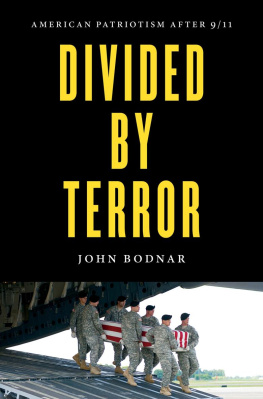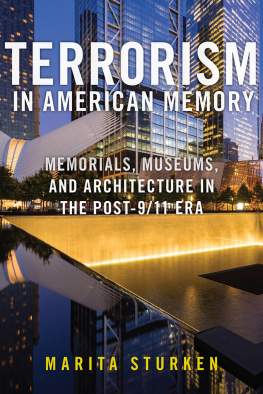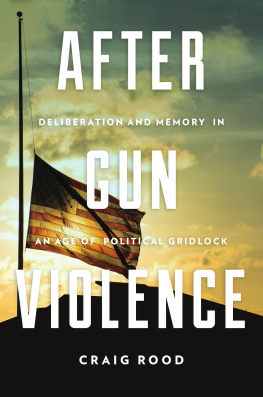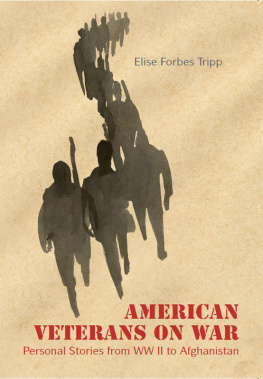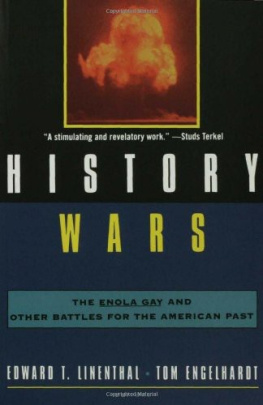The Good War in American Memory
THE GOOD WAR IN AMERICAN MEMORY
JOHN BODNAR

2010 The Johns Hopkins University Press
All rights reserved. Published 2010
Printed in the United States of America on acid-free paper
2 4 6 8 9 7 5 3 1
The Johns Hopkins University Press
2715 North Charles Street
Baltimore, Maryland 21218-4363
www.press.jhu.edu
Library of Congress Cataloging-in-Publication Data
Bodnar, John E., 1944
The Good War in American memory / John Bodnar.
p. cm.
Includes bibliographical references and index.
ISBN-13: 978-0-8018-9667-5 (hardcover : alk. paper)
ISBN-10: 0-8018-9667-3 (hardcover : alk. paper)
1. World War, 19391945Social aspectsUnited
States. 2. Collective memoryUnited States. 3. MemorySocial
aspectsUnited States. 4. War and societyUnited
States. 5. National characteristics, American. I. Title.
D744.7.U6B635 2010
940.5373dc22 2009052695
A catalog record for this book is available from the British Library.
Special discounts are available for bulk purchases of this book.
For more information, please contact Special Sales at 410-516-6936 or
specialsales@press.jhu.edu.
The Johns Hopkins University Press uses environmentally
friendly book materials, including recycled text paper that is
composed of at least 30 percent post-consumer waste, whenever
possible. All of our book papers are acid-free, and our jackets
and covers are printed on paper with recycled content.
For Sophie and Francesca
Contents
Illustrations follow page
Acknowledgments
When my mother and father talked about World War II, they always did so in bits and pieces. I never recall them saying anything about Fascism or the Four Freedoms. Those were things I learned in school. Their remembrance was about how the war affected them personally. They had scheduled their wedding ceremony in Pennsylvania in 1943 early enough in the morning so they could catch a train to Texas, where my father was stationed in the Army Air Corps near Victoria. And they talked a great deal about the friends they made in Victoria and the fact that I was born there. My mother would often recall the long train rides she took with me as an infant and how busy the rail stations were during the war years. I can still see my fathers army hat and shirt with sergeant stripes hanging in the family garage in Forest City, Pennsylvania, where I grew up. At some point the hat and shirt disappeared, but my memory of what they told me never did. I would not have written this book if it had not been for the stories they told.
I benefited from the cooperation and support of many others. At Indiana University, Claude Clegg was one of the first individuals to encourage me to write this book, and Jeff Wasserstrom stirred my early interest by getting me to write an essay on war movies. Ed Linenthal read early drafts of my manuscript and made numerous suggestions for revisions. I received a good deal of assistance from Martha Norkunas in locating materials related to Norman Mailer. I also thank Alan Brinkley, Nancy Cott, Gaines Foster, Carol Oja, John Grabowski, and Robb Westbrook. Graduate students at Indiana helped me collect materials and discuss many of the central issues discussed in the book, especially Karen Dunak, Keith Eberly, Jim Seaver, Jennifer Stinson, Chris Stone, and Jamie Warren. Barbara Truesdell offered generous help in processing and saving photographic images. Jo Ellen Fitzgeralds help was indispensable in obtaining research materials and saving various versions of the manuscript. The History Department at Indiana University is fortunate to have her on their staff. And Elizabeth Yoder improved the manuscript immeasurably.
My family also gave me assistance at every turn. My daughter, Brenna Snider, took a number of photos for me, and my son, Eric, helped me identify important films. My cousins, Jacob and Marty Bodnar, also provided some key images when I needed them. And my wife, Donna, tolerated the many trips I needed to take to bring this project to completion.
INTRODUCTION
BILLY PILGRIM, KURT VONNEGUTS FICTIONAL CHARACTER in Slaughterhouse-Five, never could recall exactly what happened in World War II. Pilgrim, like the man who created him, was an American veteran of the conflict who witnessed the fire-bombing of Dresden as a prisoner of war. Yet his firsthand experience in Europe had not given him total recall. On the contrary, Pilgrim struggled throughout his fictional life to remember exactly what he had been through. He did bring home a ceremonial Luftwaffe saber, but even souvenirs could not help him remember clearly. Over time he recalled the war in fragments and in the form of troubling nightmares. When it came to the memory of World War II, Pilgrim could say only that all this happened more or less.
The point of Vonneguts fictionthat coherent remembrances of the war were not possible and not trustworthywas ironically no fiction at all. Millions of people endeavored for the rest of their lives to recall, or even to forget, aspects of the frightening reality of the global struggle that was World War II. It might come as a surprise to people now living in the United States to learn that the memory and the meaning of that war was actually a matter of contention among Americans who lived through those times. Widespread celebrations of the generation that fought the war and of the nations victory are now commonplace. Mythical images of a powerful nation and righteous citizen-soldiers command reverence. The diffculties of remembering that plagued Pilgrim and Vonnegut, his creator, are scarcely acknowledged at all.
This book takes Pilgrims problem seriously as I seek to explain how Americans struggled to craft both an understanding of World War II while it was being fought and a remembrance of the war after it ended. It is a history that argues unequivocally that the significance of the struggle was the source of a widespread political and cultural debate. Even as citizens came together to battle Germany and Japan in 1941, they expressed disagreements over why they had to fight. This is not to say that millions of Americans did not see danger and evil in the rising power of totalitarian regimes or feel that it was necessary to take up the burden of stopping Fascist aggression. They did. The point here is that such outlooks were only part of a vast public argument over how to understand what was going on and how to frame the unprecedented turbulence in the world that the war brought.
The controversy was lengthy and extensivecarried out in literary circles, movie theaters, museums, public parks, veteran organizations, and the inner recesses of private mindsbecause ultimately it was not so much about the war as about national identity. The cataclysm of warlike other historic eventsforced Americans to consider both the virtuous and the violent sides of their nature. Various spokesmen have described Americans as morally superior, heroic, united, innately peaceful, and committed to defending human rights around the world. Others have noted racist or darker impulses that lusted for dominance over others both within and outside the nation and justified acts of excessive cruelty. At stake in the debate was, in fact, the myth of American exceptionalism with its attendant faith in the promise of individualism. In this creed it was an aggressive sense of personal freedom for all and a hatred for all forms of tyranny that made America a special place and offered its citizens and the rest of the world the best chance to create a future better than the past. In such a culture strength was favored over weakness, self-reliance over cooperation. Since liberal nations like the United States were presumed to be exemplary in their commitment to individual rights and to a just world, they faced a particular problem in conducting wars and displaying identities. Episodes of state-sponsored violence undermined their reputation for goodness by causing them to commit brutal acts and by asking some citizens to relinquish the rights they had. In wartime, the liberal hope Americans placed in human nature and the nation itself was both affirmed and shaken as democratic citizens revealed a capacity to fight for freedom but also to kill enemy combatants and civilians at will. This is why scholars have often seen war as an event that exposed the seam in the liberal political imagination and the darkness in the souls of even men who were free. For Americans, it underscored inconsistencies that clashed at the heart of their imagined sense of self.
Next page

